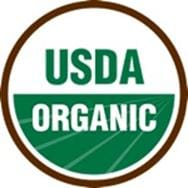Vermont Digger
by Dave Rogers
Editor’s note: This op-ed is by Dave Rogers, policy adviser for the Northeast Organic Farming Association of Vermont (NOFA-VT).

By the end of April, when members of the Vermont House Agriculture Committee finally concluded weeks of testimony and discussion on H.722, a bill that would require foods made with genetically engineered (GE) ingredients to be labeled, one thing had become very, very clear: Many thousands of Vermonters have strong concerns about the unknown health and environmental impacts of GE foods and want them labeled so that they can know if the food they buy and feed to their families is, or isn’t, GE-free.
An estimated 75 percent of processed, packaged foods found on supermarket and natural food store shelves in Vermont and throughout the country contain GE ingredients derived from GE corn, soybeans, sugar beets or other GE plants. In 2010 these GE crops were planted on over 165 million acres of U.S. farmland. As the number of new GE grains, vegetables and animals continues to grow, so too will the prevalence of foods containing GE ingredients. Unfortunately, H.722 was not passed by the end of this legislative session. But, of course, Vermonters’ longstanding concerns about GE foods remain and the number of people who desire to avoid them continues to grow.
 So, it is not surprising that, in Vermont and throughout the country, the production and sales of USDA certified organic foods continues to expand. In fact, surveys conducted by the Organic Trade Association have found that over 80 percent of organic consumers cite avoidance of GE foods as a major reason for their purchases.
So, it is not surprising that, in Vermont and throughout the country, the production and sales of USDA certified organic foods continues to expand. In fact, surveys conducted by the Organic Trade Association have found that over 80 percent of organic consumers cite avoidance of GE foods as a major reason for their purchases.
From the beginning of the USDA’s National Organic Program (NOP) in 2002, rules and standards that govern the production of certified organic crops, animals and processed foods have prohibited all methods “used to genetically modify organisms or influence their growth and development by means that are not possible under natural conditions or processes.” This means that all seeds, animals, food ingredients, animal feeds, and production inputs used in certified organic production must not be produced using genetic engineering.
In order for a farm, food manufacturer or food handling facility to become certified organic they must comply with a broad range of NOP rules and standards pertaining to health, environmental and sustainability practices, of which prohibition of GE methods is only one. All certified operations are visited and inspected at least yearly by trained inspectors employed by one of over 50 USDA Accredited Certifying Agencies across the country.
In Vermont, the Vermont Organic Farmers, LLC (VOF), the certification program of the Northeast Organic Farming Association of Vermont, inspects and certifies over 580 farms and food facilities. Operators must demonstrate compliance with these standards and present complete records, including, among other things, sales receipts and affidavits that prove the non-GE status of all purchased inputs. Failure to comply with these requirements can lead to decertification.
This rigorous third-party certification process is guaranteed each time you see the green and white “USDA Organic” label or the logo of certifying agencies such as VOF; the same process applies to products labeled “Made with Organic,” which include at least 70 percent certified organic ingredients. (No ingredients in the “Made with Organic” category, whether organic or non-organic, can be produced using GE.)
Of course, no system is without challenges and opportunities for improvement. For example, in Vermont, as elsewhere in the world, GE crops are increasingly prevalent and pose serious risks of GE genetic contamination of certified organic seed stocks, ingredients and organic supply chains. Organic farmers, processors, certifying agencies and the National Organic Program are all working very hard to identify effective methods and standards to prevent and mitigate these risks.
Rigorous standards, professional third-party inspection and certification protocols, and continuous improvement are the hallmarks of USDA certified organic foods. They are what makes the USDA organic label the standard for consumers who care deeply about the safety and the integrity of the food that they buy and feed their families.

